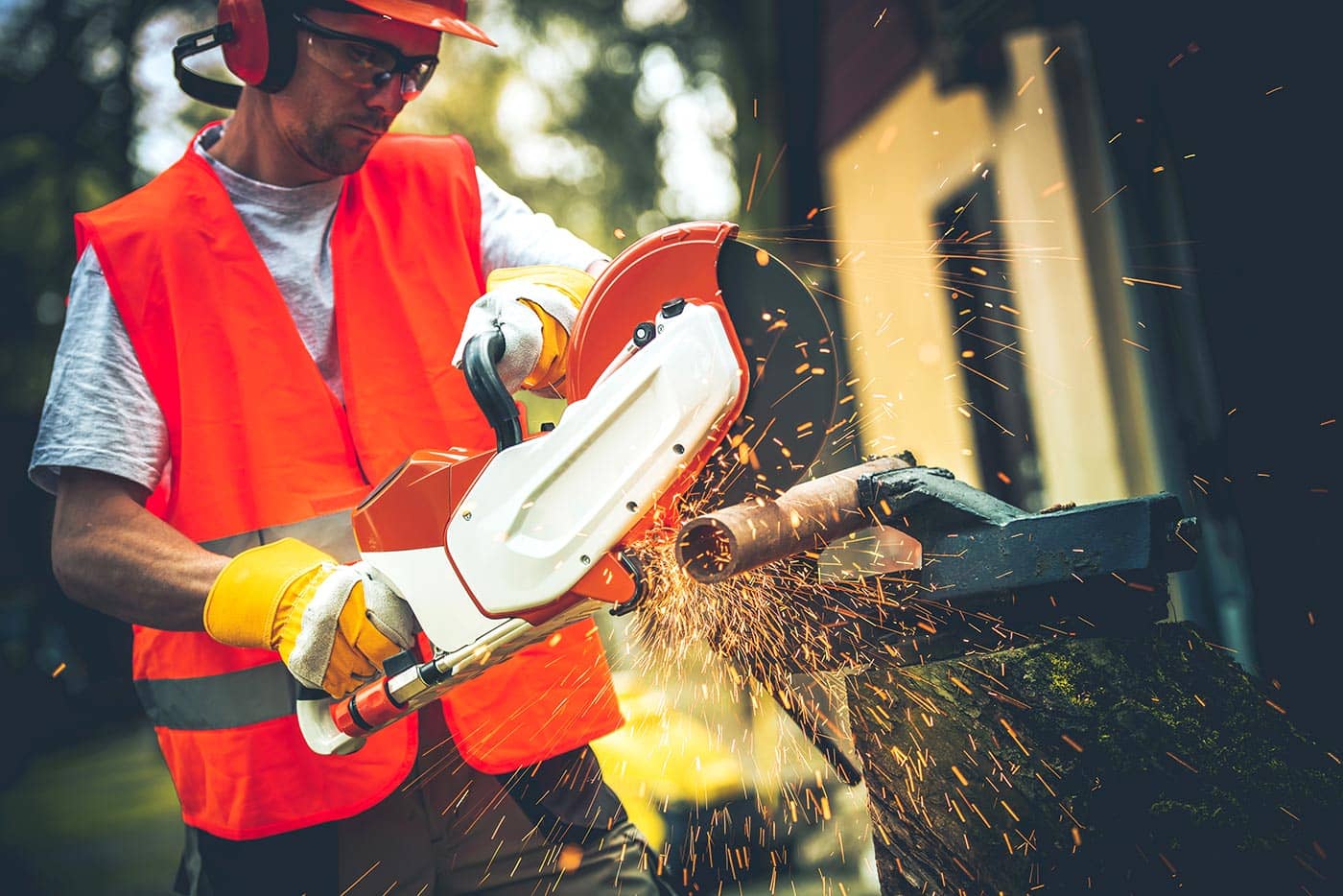Occupational safety in high-risk industries is a paramount concern in today’s fast-paced world. The safety of workers is of utmost importance, as accidents and incidents in these industries can lead to severe injuries, fatalities, and significant economic losses. In this article, we’ll delve into the world of high-risk industries, discuss the challenges they face, and explore effective measures to mitigate risks and ensure the well-being of employees.
Understanding Risk in Occupational Health and Safety
Before we dive into the specifics of high-risk industries, let’s establish what we mean by “risk” in the context of occupational health and safety. Risk can be defined as the likelihood of an event occurring that could lead to harm, injury, or illness in the workplace. It is a crucial aspect of safety management, and understanding it is essential for designing effective safety measures.
What is an Example of Risk in Occupational Health and Safety?
To grasp the concept of risk better, let’s take a closer look at a hypothetical example from a high-risk industry in the UK. Imagine a construction site where workers are tasked with erecting a tall building. One of the significant risks in this scenario is a fall from heights, which can result in serious injuries or even fatalities. This risk can materialise due to various factors, such as unstable scaffolding, lack of appropriate safety equipment, or inadequate worker training. It’s crucial to identify such risks and implement measures to mitigate them.
4 High-Risk Industries with Workplace Safety Concerns
Now, let’s explore four high-risk industries in the UK, highlighting the safety concerns they face and how they address these challenges to ensure the well-being of their employees.
Construction Industry
The construction industry is notorious for its high-risk nature. Workers are exposed to various dangers, including falls, heavy machinery accidents, and hazardous materials. The UK has implemented robust regulations to enhance safety in the construction sector. These include mandatory training and certification for workers, strict adherence to safety guidelines, and thorough inspections to identify potential hazards. Additionally, the use of personal protective equipment (PPE) is widespread in this industry, further reducing the risk of injuries.

Mining Industry
Mining is another high-risk industry with inherent dangers. Miners work in confined spaces, often deep underground, where the risk of cave-ins, gas leaks, and fires is ever-present. The UK mining sector has adopted a proactive approach to safety. Stringent safety protocols, regular safety drills, and advanced monitoring systems are in place to prevent accidents. Additionally, well-maintained equipment and ongoing training programs for miners are essential components of safety management in this industry.
Oil and Gas Industry
The oil and gas industry is no stranger to occupational hazards. Workers in this sector handle flammable materials, operate heavy machinery, and often work in remote and challenging environments. To mitigate the risks, the UK oil and gas industry enforces strict safety standards, such as the use of fire-resistant clothing, rigorous safety inspections, and extensive training programs. Regular safety audits and risk assessments help identify potential hazards and ensure that preventive measures are in place.
Manufacturing Industry
Manufacturing, while vital to the UK economy, poses its own set of risks to workers. Employees in manufacturing plants operate heavy machinery, work with chemicals, and are exposed to loud noise levels. The manufacturing industry emphasises safety through the implementation of machinery safeguards, safety training, and the promotion of a culture of safety among employees. Regular equipment maintenance and safety inspections are also crucial to minimise workplace accidents.
It’s important to note that these high-risk industries have made significant strides in improving occupational safety. However, ensuring a safe workplace is an ongoing process that requires continuous vigilance and adaptation to evolving risks.
Effective Measures for Occupational Safety
The UK has adopted a multi-faceted approach to ensure occupational safety in high-risk industries. Here are some of the most effective measures and strategies employed:
Safety Training and Education
One of the cornerstones of occupational safety is education and training. Employees in high-risk industries are often required to undergo extensive training programs to familiarise themselves with potential risks and safety protocols. Regular safety drills and workshops are also conducted to ensure that workers are well-prepared to handle emergencies.
Use of Personal Protective Equipment (PPE)
PPE plays a crucial role in safeguarding the well-being of workers. In high-risk industries, employees are often required to wear protective gear such as helmets, safety glasses, gloves, and respirators to minimise the risk of injury. Regular inspections and mandatory use of PPE are essential components of safety management.
Risk Assessments and Audits
Regular risk assessments and safety audits are fundamental in identifying potential hazards in the workplace. By conducting thorough assessments, employers can pinpoint areas of concern and take proactive measures to mitigate risks. This includes addressing issues related to machinery maintenance, environmental factors, and employee behaviour.
Safety Culture
Cultivating a safety culture within an organisation is a crucial aspect of ensuring workplace safety. When employees are actively involved in safety measures and encouraged to report hazards, accidents can be prevented. Companies often reward and recognize individuals who contribute to safety initiatives, fostering a sense of responsibility among workers.
Emergency Response Plans
In high-risk industries, it’s essential to have comprehensive emergency response plans in place. These plans outline the steps to be taken in case of accidents, fires, or other emergencies. Regular drills and simulations help employees become familiar with the procedures, ensuring a swift and effective response when needed.
Technology and Automation
The integration of technology and automation has significantly improved occupational safety in high-risk industries. Advanced monitoring systems, sensors, and robotics are increasingly being used to reduce the exposure of workers to dangerous situations. These technologies provide real-time data and early warnings, allowing for a quick response to potential risks.
Making an Accident at Work Claim with National Claims
At National Claims, we understand the importance of occupational safety, and we are here to support workers who have experienced workplace accidents. If you’ve been injured due to an accident at work in a high-risk industry, you may be entitled to compensation. Our dedicated team of legal experts is committed to helping you navigate the claims process with ease.
How National Claims Can Help
Free Consultation: We offer a free initial consultation to discuss the details of your accident and assess the viability of your claim.
Expert Advice: Our team of experienced solicitors specialises in workplace accident claims. We provide expert guidance throughout the claims process.
No Win, No Fee: National Claims operates on a “No Win, No Fee” basis, meaning you won’t incur any legal fees unless your claim is successful.
Maximised Compensation: We work tirelessly to ensure you receive the maximum compensation you deserve for your injuries, loss of earnings, and medical expenses.
Quick Resolution: Our goal is to resolve your claim as quickly and efficiently as possible, so you can focus on your recovery.
Conclusion
Occupational safety should never be compromised, and the UK’s dedication to ensuring the protection of its workers sets an example for industries worldwide. As we move forward, let’s continue to prioritise the safety of those who contribute to the growth and prosperity of our nations, regardless of the industry they work in.
Occupational safety in high-risk industries is an ongoing journey, and it requires the collaboration of employers, employees, and dedicated organisations like National Claims to ensure that workers are protected, and their rights are upheld. Together, we can create a safer working environment for all and provide support to those who need it when accidents do occur.
Speak to one of our claims specialists today by contacting us and they will help you get started on your claim.
Click below to see why we are one of the most trusted claims management companies in the UK.

We’re proud of our excellent customer reviews
We thrive on delivering exceptional service and ensuring our clients’ satisfaction. Don’t just take our word for it. Check out some of our independent reviews to see what our clients have to say.
Excellent

This firm is excellent, they sorted out my car pay out and injury claim very fast, they always communicate with you all the time.

My accident case was dealt with confidence and with great result of the outcome, especially James kept me informed all the time.

I was very impressed at the way my inquiry was treated. I was listened to attentively and everything I needed to know was explained to me.






